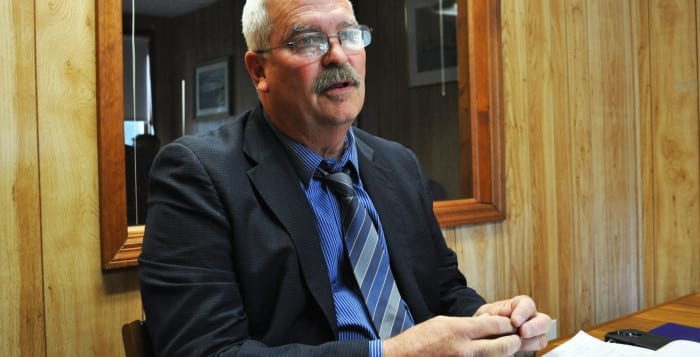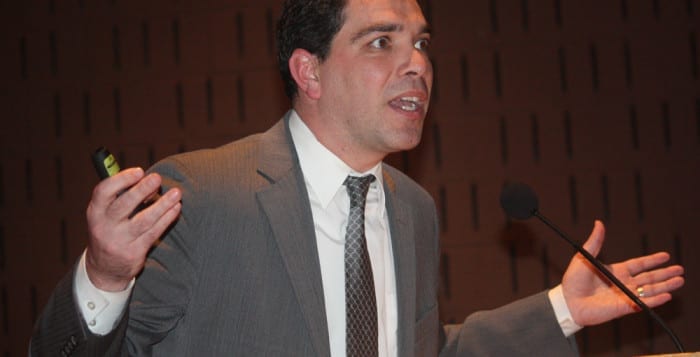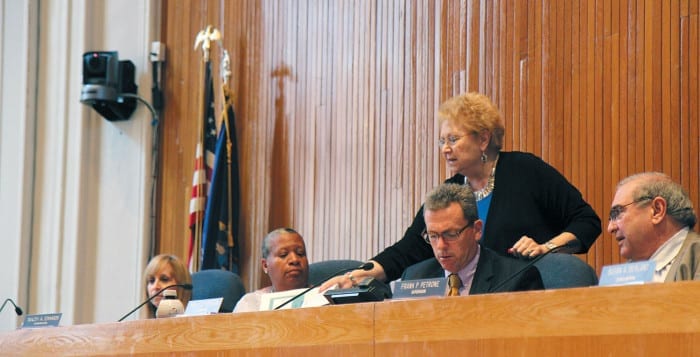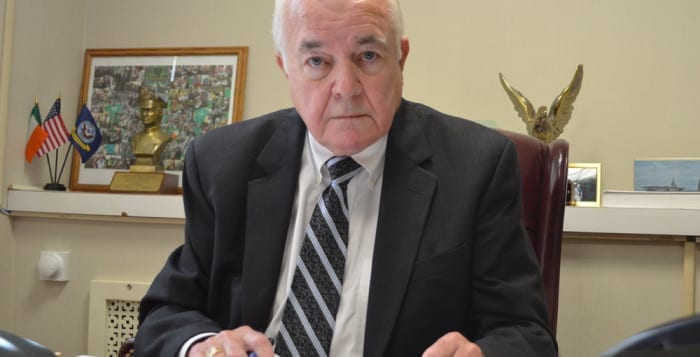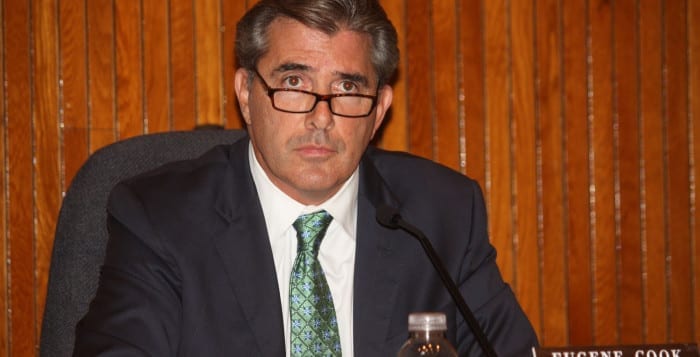By Victoria Espinoza
Parking in Huntington village, accessory apartments and town finances were just a few of the hot topics Huntington Town Board candidates tackled at a debate hosted by this newspaper on Oct. 23.

Councilwoman Susan Berland (D) and Councilman Gene Cook (I) are seeking re-election, and challengers Keith Barrett, a Democrat and Jennifer Thompson, a Republican, are in the running for two open seats.
Berland has been in office since 2001 and is seeking a fifth term, and Cook has been in office since 2011 and is seeking his second term.
Barrett is currently deputy director of general services for Huntington Town and president of the Huntington Station Business Improvement District. Thompson is a trustee on the Northport-East Northport school board.
The candidates first discussed issues Huntington businesses face.
“Upgrades take too long,” Barrett said, referring to planning applications. “It can be done faster if the building department was streamlined.”

Berland and Thompson echoed Barrett’s sentiments. Thompson said this slow process deters people from making changes to their businesses.
“I am consistently hearing it’s a tedious process,” Thompson said. “When people take that risk to open a business they should be rewarded. Town hall shouldn’t be a roadblock.”
Berland said she welcomes business owners to come into her office and meet with department heads to go through their plans. “I have various department heads come in,” Berland said. “We sit down and look at their plans and we have every department say what’s good and bad about the plan and what you need to change.”
Cook said the biggest challenge facing business owners is high taxes. He said he has never voted for Supervisor Frank Petrone’s budget because “there is mismanagement of money and misappropriations of funds.”
Candidates agreed accessory apartments are important but need much supervision and regulation.
Cook said that he likes the idea of accessory apartments, but they are “going a little bit crazy,” because people aren’t adhering to town guidelines. Cook said every accessory apartment resident should have a spot for a car in his or her driveway and not park on the street.

Thompson agreed that with the right exceptions and variances, the units are beneficial.
“I’m interested in looking case-to-case to see what makes sense for that particular area,” Thompson said. She also said the town should be looking at other models to see how they are handling issues like this.
Young people and seniors can both benefit from such housing, Barrett said.
“I think we need to be regulating these apartments,” Barrett said. ‘I drive around and see 10 cars on a driveway.”
Berland said she is an advocate of accessory apartments, and that she spearheaded legislation to ensure they are owner-occupied. “The big problem was when investors were coming in and buying these single-family houses and turning [them] into a multiple-resident, hotel kind of thing,” Berland said. “Which I think is inappropriate and ruins communities.”
Parking in Huntington village has been an issue many residents have sounded off on.

Thompson and Cook both backed an idea for a parking garage that they say wouldn’t cost taxpayers, Cook, the owner of a construction company, said developers come to him all the time looking for jobs, and that there are companies out there that would take on this project as a public-private partnership.
“At least let’s open the door to the conversation,” Cook said.
Barrett was not in favor of the idea.
“I’m not a big fan of the three-story parking garage,” Barrett said. “I would like to explore some other alternatives first.”
Barrett said he sees these parking garages as being very costly. He thinks the biggest reason parking is an issue is because the village’s employees take up all the spots. Barrett said he’s interested in following Atlantic City’s structure, where employees park remotely and are bussed into the downtown.
Berland said the idea with a parking garage is to have some sort of structure with businesses on the bottom that would help subsidize the costs of the spots. She also said that there is no such thing as a parking garage that doesn’t cost taxpayers.

